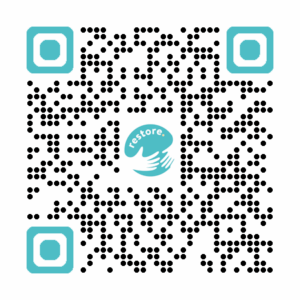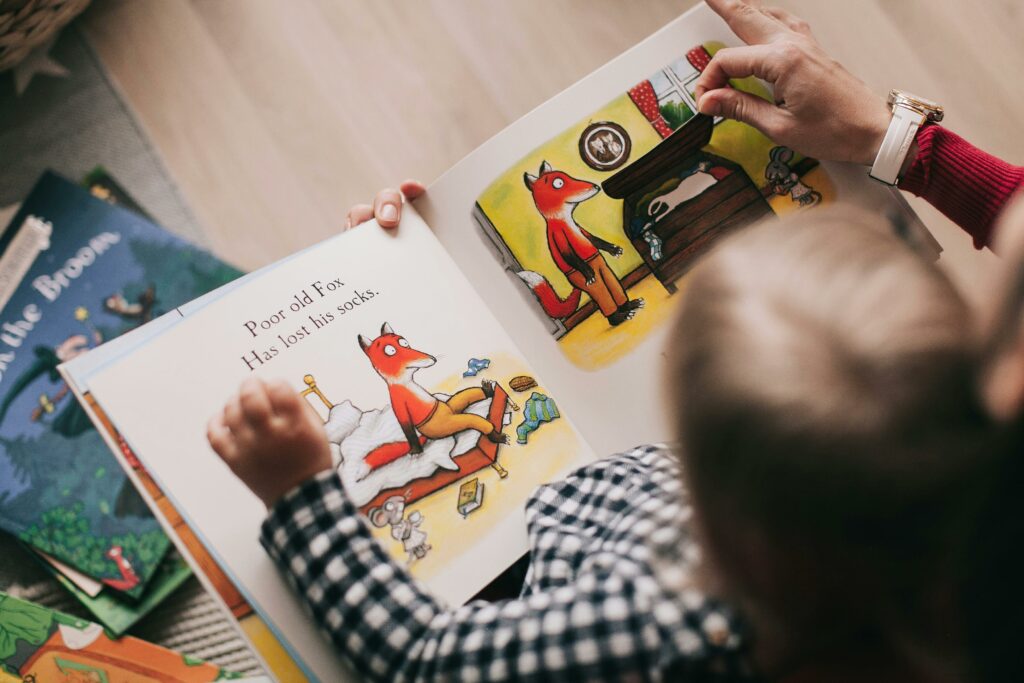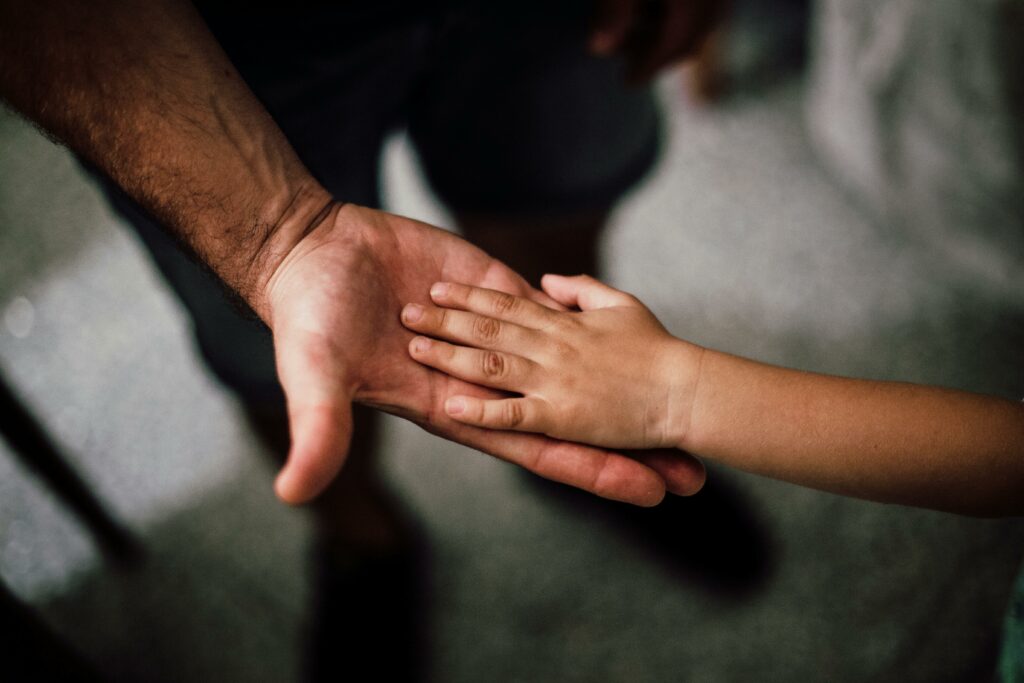Child Support
Support for Children affected by Domestic Abuse
Children living in our Refuge have access to support through accessing some of the programmes listed below, but we also provide emotional support as soon as they arrive at the Refuge. Children are provided with packs with differentiated resources in to work through with a member of the child support team throughout their time in the Refuge. This enables them to process and learn to reflect about their thoughts and feelings whilst developing trusting relationships with staff.
For children age 11 and older, please visit our Young Person Project page.Our Programmes for Children
Please fill out our Referral Form directly or scan the QR code to submit your details.
Helping Hands
The Helping Hands Programme is a 10 week-long programme, designed for Primary School aged children (KS1& 2/ age 5-11) and looks to explore protective behaviour themes, helping children to identify feelings and how they impact behaviours in others and themselves.
The overall aim of the programme is “to increase children’s understanding of feeling safe and to explore and promote behaviours which will contribute to a safe environment.”
Each session builds on the knowledge from the previous week. It has been developed to encourage creativity and play as tools to investigate and reflect on their thoughts, experiences and understanding of safety, empowerment and resilience.
Drawing and Talking
- D&T is an attachment based therapeutic intervention, using a non-directive, gentle approach to enable clients to explore their inner thoughts and feelings in a creative and safe way.
- It can be used for both one-to-one and group sessions and as advanced trained practitioners, we can also provide individual sand play sessions which are particularly useful for younger clients who require a non-verbal way to explore and process their emotions.
- Drawing and Talking, used as an early intervention technique to compliment CAHMS and other specialty services, has shown to be a valuable resource in supporting early childhood development and long term emotional resilience. Statistics show that 50% of lifelong mental health issues can be diagnosed before the age of 14, usually preceded by a range of smaller non-specific emotional-social difficulties in life, which is why early intervention is key.
Who is in Charge?
- WIC is a programme aimed at parents whose children are behaving violently or abusively towards them(CPV-child to parent violence) or who appear out of parental control.
- The programme consists of 8, two and a half hour sessions and a 2 month follow up.
- Who’s in charge is divided into three sections:
1. Exploring how children’s behaviour is multi-causal, deconstructing unhelpful myths about their behaviour that contribute to guilt, shame and blame. This section also helps parents to identify social changes, parenting styles, nature of abuse and entitlement and power that are likely to make child to parent violence more likely.
2. Looks to acknowledge the difficulties parents face when trying to implement boundaries and consequences and the challenges that come with that for those experiencing CPV. The course seeks to empower the parents and therefore promote a more positive balance between child and parent and improve the overall relationship between them.
3. The third and final part of the programme supports the parents to make positive changes and reinforce them whilst also working on some advanced topics. There are focussed on anger, assertiveness and self-care. Parents will be supported to become self-reflective in order to gain a deeper understanding of themselves which will enhance their ability to remain empowered in their relationships with their children.



